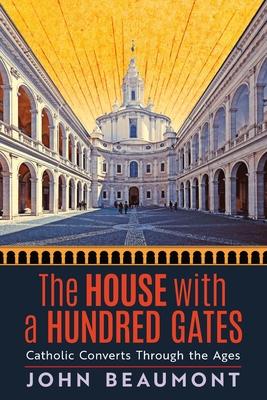In this engaging and wide-ranging work, John Beaumont, the leading expert on the history of Catholic converts in the English-speaking world, takes us on a tour through the highways and byways by which many souls have entered into the Catholic Church, the "house with a hundred gates." We are regaled with moving stories of heroic English martyrs, and the quieter but no less inspiring stories of women who brought their families and social circles to the Faith; we learn about better-known converts like Evelyn Waugh, Walker Percy, Joseph Sobran, Dietrich von Hildebrand, and Bella Dodd, and about the troubled and wandering who yet remained tethered to the Church, such as Ernest Hemingway and Oscar Wilde; we learn of deathbed conversions, such as that of Wallace Stevens. Among the dozens of figures studied, we find actors, poets, novelists, philosophers, historians, communists, journalists, musicians, martyrs, puritans, and priests; even members of the British Royal Family. In following the external and especially internal twists and turns by which converts find their way home to the Church, the author gives us a penetrating account of what it is that draws men and women to God, to Christ, and to the Church-the arguments that capture their minds, the beauty that calms their restlessness, the personal influences that captivate their hearts. Throughout, he is sensitive to the confusing situation in the Church today, where it seems that certainties and conversions have gone out of fashion, and reassures us that the essential truths for which so many converts entered the Church in the past have lost none of their abiding appeal for pilgrims in search of God.

The House With a Hundred Gates: Catholic Converts Through the Ages
In this engaging and wide-ranging work, John Beaumont, the leading expert on the history of Catholic converts in the English-speaking world, takes us on a tour through the highways and byways by which many souls have entered into the Catholic Church, the "house with a hundred gates." We are regaled with moving stories of heroic English martyrs, and the quieter but no less inspiring stories of women who brought their families and social circles to the Faith; we learn about better-known converts like Evelyn Waugh, Walker Percy, Joseph Sobran, Dietrich von Hildebrand, and Bella Dodd, and about the troubled and wandering who yet remained tethered to the Church, such as Ernest Hemingway and Oscar Wilde; we learn of deathbed conversions, such as that of Wallace Stevens. Among the dozens of figures studied, we find actors, poets, novelists, philosophers, historians, communists, journalists, musicians, martyrs, puritans, and priests; even members of the British Royal Family. In following the external and especially internal twists and turns by which converts find their way home to the Church, the author gives us a penetrating account of what it is that draws men and women to God, to Christ, and to the Church-the arguments that capture their minds, the beauty that calms their restlessness, the personal influences that captivate their hearts. Throughout, he is sensitive to the confusing situation in the Church today, where it seems that certainties and conversions have gone out of fashion, and reassures us that the essential truths for which so many converts entered the Church in the past have lost none of their abiding appeal for pilgrims in search of God.